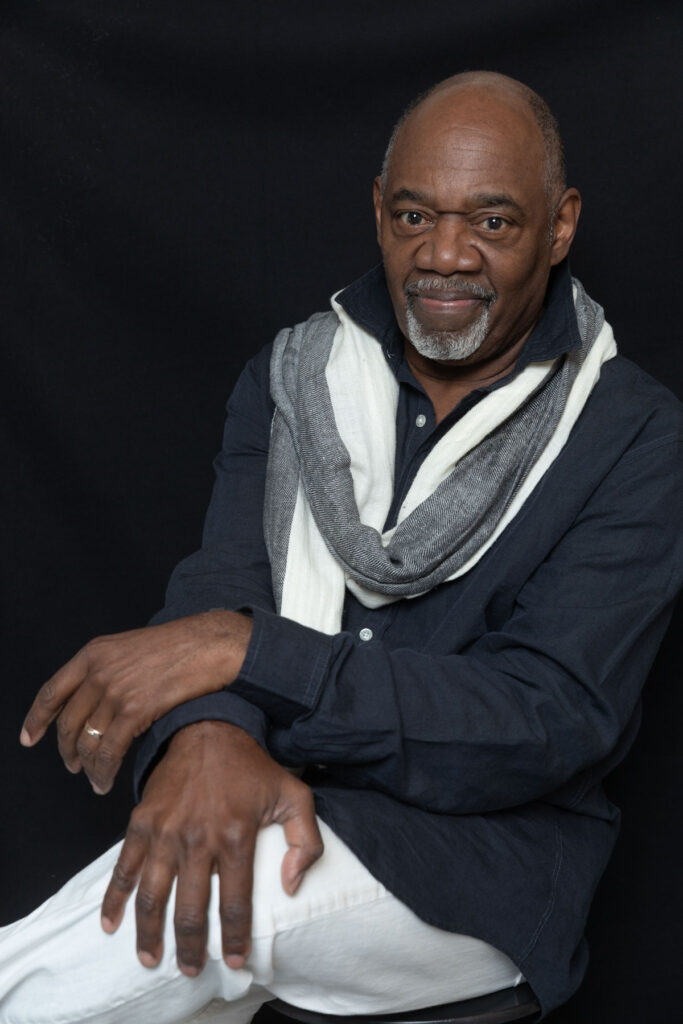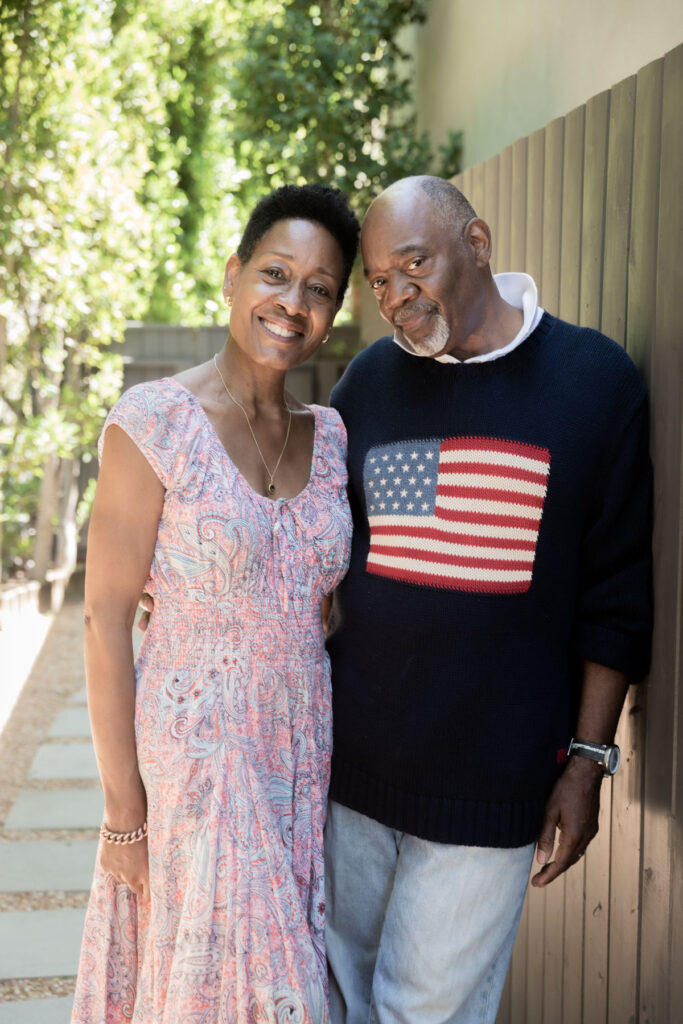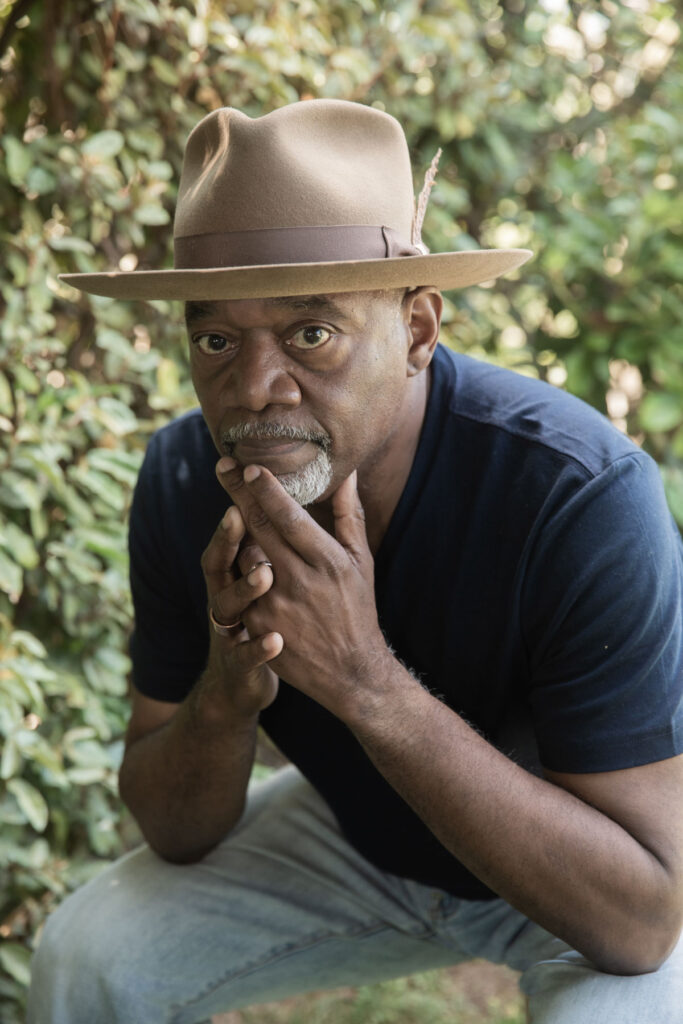FMM: Tell us about your role as “David Carter” in HBO’s hit comedy, Insecure. The final season had rave reviews and left audiences satisfied with the outcomes of each character. Do you feel your character overall arch was complete and are you satisfied with how David ended with the show?
Yes and I’ll tell you why. My daughter on the show “Molly” played by actress Yvonne Orji and my character “David” fell into adversity during the first few seasons, because I did cheat on her mother. While my two sons accepted it, forgave me, and moved on, Molly didn’t. For many years, she and I were estranged. I was happy she spoke to me and we tried to amend our relationship in this final season. She accepted that her father can make mistakes and work on it with his wife. Once my character and the wife went back together, Molly came around. I think what was important was to show that a parent could be flawed and that children in some ways have to understand what their parents go through. It was so mature of her to understand that if her mom accepted it, mom got through it, then I think I have to accept that they are both okay with each other. So yeah I was pleased with the reconciliation that happened between “Molly” and “David”. Of course, by the end of the last episode, I lost my wife as soon as we both agreed to forgive each other and move on. She dies so the irony is definitely seen this season. As Molly forgives her dad and comes back to be closer to her parents she then suffers the passing of her mother. Talk about a closure there. There is a tragedy in it but there’s also reconciliation. I like the fact that David was a good man, but he made a bad mistake and he wasn’t villainized for it. Instead, he was forgiven and that is something you don’t get to see that very much for men on television.
FMM: Upon reflection on the past five years being on the show, the ups and the downs. Share a few memories and what it was like growing with your cast mates each season.
Anytime the family got together it was a blast. We just really enjoyed being around each other, because we were always making each other laugh. Even though the nights filming were long, we did have that ability to keep our energy and our spirits up. I really enjoy working with these actors, because it felt like they were a family to me. I think our bond resonated on the show, because we became so close. We could lean on each other, tell jokes, and run things by one another. Season 5 was when we really got closer because we all appeared in so much more scenes because of the overall plot.

FMM: What has acting taught you about the human condition?
Well, that’s a good one. I guess it taught me about being sensitized, because as an actor you’re sensitive to everything around you. How people look, how they sound, and their body language. As an actor, you become even more aware of all of that, because you’re doing it all on a stage or in front of cameras. Throughout the years, I got a better sense of how to read people. I can notice when someone is in a really uncomfortable position and it calls me to maybe step in. It helps me as an actor and a human being to be more sensitive and understanding with other people’s feelings and emotions. I really think that comes from observing human behavior, understanding what might inspire that behavior. It also really helped me to become more intimate with people and interpret relationships, because I’d look past what they’re saying and maybe understand a little bit more of what they really mean.
FMM: How has the industry changed since you first started in it?
The pro is that the industry has become more tolerant and diverse. Not just in front of the camera, but behind the camera as well. Since 2020, everything with Black Lives Matter and the murder of George Floyd, the industry has been called out where companies are being held accountable to have more diversity amongst their employees. Same thing happened during the MeToo movement. There’s far more introspection, awareness, and evening out the power. I’m not saying that they’re there yet, but from the days when I first started in the industry it is far better. We are finally seeing action behind the words with the canceling and firing people because of what they did. Stereotypical roles are starting to go away as well…like why does the black guy always have to be the sidekick? Ever since that narrative has been questioned, a change started to happen. Thus resulting lead roles being given to people of color.That’s something I think is new and I can’t wait for it to continue and grow.
FMM: You were honored with an NAACP Theatre Award for “Best Director” for your work on Fences. What did this award mean to you?
It’s always nice when your peers recognize your work. It’s nice when your peers come to see your work and recognize that you directed something special. It’s just sort of like a rubber stamp saying “yeah, you told that story well, you moved us.” There’s a lot of talented people out there, so many talented actors and directors, so when a group like the NAACP takes a moment to say okay you are the “Best Director” it made me feel honored and thankful that I am presenting my best work to the people I respect.

FMM: Tell us about “The Duat” by Playwright Roger Q Mason and director Taibi Magar as part of the series, Not a Moment, But a Movement. What intrigued you about this project?
I’ve never done a solo performance piece, because I’m not a solo performer. I really admire those type of actors, because it is so much harder to not have anyone to play off of. I love Roger Q Mason’s work and the fact that this young guy wrote a wonderful play about a middle-aged black guy. He wrote something so sensitive, so complex, and so multifaceted, it’s like “wow.” At first, I was scared to take on this role. For one, I haven’t been on stage a long time, because I have been doing a lot of directing. Lately when I am acting it has been in TV and movie projects. So being back on stage felt like something new all over again. My wife was really the one who convinced me to say yes. The play deals with a guy who got some black panthers killed and as a result he was killed as well. He then enters what we call The Duat to receive his final judgement.
FMM: What moved you about the character Cornelius?
The character is coming-of-age during the black power movement. I related so well with the plot of The Duat, because it was during my era growing up. So I related very easily to “Cornelius” because black people for the first time were trying to say “I’m Black and proud” and at that time it was a radical statement. So playing “Cornelius Johnson” came natural to me, because I could easily relate to his struggles as an educated black man facing a bigoted racist system.
FMM: How does “The Duat” resonate with you on a personal level?
What’s great about “The Duat” for me was the sacrifices and gains that we made in the 1960s and how they are now paying off today. I see young men and women now boosted with activism because of the men and women who paved the way during the Civil Rights Era. This play really hones in on that change from then to how things are more diverse now.
FMM: What can you tell us about your upcoming play, In The Upper Room? What is it about?
It’s a new play about a multi-generational black family living in the same home. It involves colorism, secrets, and the drama of an American family. In this play, the family is struggling to love each other and grow because of the deep secrets among them. Every family is flawed or dysfunctional in some way, so audiences can really relate to this family.
FMM: Being an actor and theater director, which aspects of each do you enjoy doing more?
I think I’m a better actor, because I’m a director. I also think I’m a better director because I’m an actor. I do think each one feeds the other. Whether I’m acting or directing, the director reflects on the acting, and the acting works on the directing. The more I act the more I have gained the sensibility to see how the lights, the sets, costumes, and sound all feed into making production a very strong and unified message. As a result, ’m very pleased to have been able to really get some great projects in both acting and directing.

FMM: As Hollywood strives to be more diverse, do you feel that the theater industry should do the same in their roles? If so, how?
Yes. In 2020, there was a paper that was written by a black female called “We See You White There” and that was sent around primarily to white institutions. Let me say, the reverberations that this had were unbelievable. Because of this anonymous piece, theatre companies began rethinking their programming, their seasons, how they can be more diverse among race and gender. Well-known theaters were called out for having one black play a year and or a season. Theatre companies were called out on the lack of diversity among their board. Because of this piece, theatres are now striving to change the narrative. They want more people of color on their stages that are telling different narratives outside of the stereotypical plots. Now, a whole new group of diverse artistic directors are working at the Shakespeare festival. They just hired a BIPOC female by the name of Nataki Garrett, to run their artistic department. She’s taking over the 30 to 40 million dollar complex that they have up there in the theatre. So, by changing the head of artistic directors and making them more diverse, it’s gonna filter down to the programming and their choices of designers, actors, and directors.
FMM: Tell us about your work as an Artistic Director of LA-based Theatre Co., Lower Depth Theatre (LDT). Why is this work so important to you? What will actors notice when working with you?
It’s the choices that I get to make that makes it so important to me. With this position, I get to work with writers, designers, and actors that I want to work with. I get to commission part of my company- Lower Depths Theater. We decide on the topic that we think is not being covered enough by the American theatre. We find a play writer who we think has a very unique voice, and we commission them. Currently, we have commissioned a local playwright to LA, called Diana Bubano. She writes about incarcerations among women. She tells the story with a “what if” the women incarcerated were secret gods and goddesses. It’s just amazing in terms of imagination and a bit of magic realism that goes in the play. So one of my duties and obligations as an artistic director is choosing the makeup of the season, choosing the kind of work we put out there. When people see Lower Depth Theatre, they know it’ll be a BIPOC centered story, it’ll be something uplifting, it’ll be true to what’s the challenge of now with people of color. That’s what we stand for. I have colleagues I rely on who founded the company with me. We get to educate an audience when they come to Lower Depth Theatre and start conversations. Start conversations that are either difficult to speak about or conversations I never even thought about before as a result of seeing a play on stage.
FMM: From working full-time to being a father and a husband, how do you have time to do it all and still continue on with your journey of success? What is your secret?
Family is the basis of everything. My daughter just graduated from college and every decision I’ve made from the moment she was born was all about how she’s going to view her dad. I thought about how I can help her education, how to raise her to be a good human being, and how she can make good choices. The world is imperfect, but I’m trying to shape her in a way where she can navigate through life on her own. I also choose what kind of project I want to be in based on if it is something my family would be proud of as a result of it. It’s helped so much in terms of my moral compass of what I will and will not do.
FMM: What’s next for you?
I am directing a new play, In the Upper Room, that opens on February 18th, 2022. I also have a commission at Lower Depth Theatre, a commission out to a playwright. We will workshop that for a little bit and see how that goes. Those are the two things I’m dealing with right now, but it goes quicker than you think. There are also projects I have coming up that I cannot wait to talk about once it gets announced.



